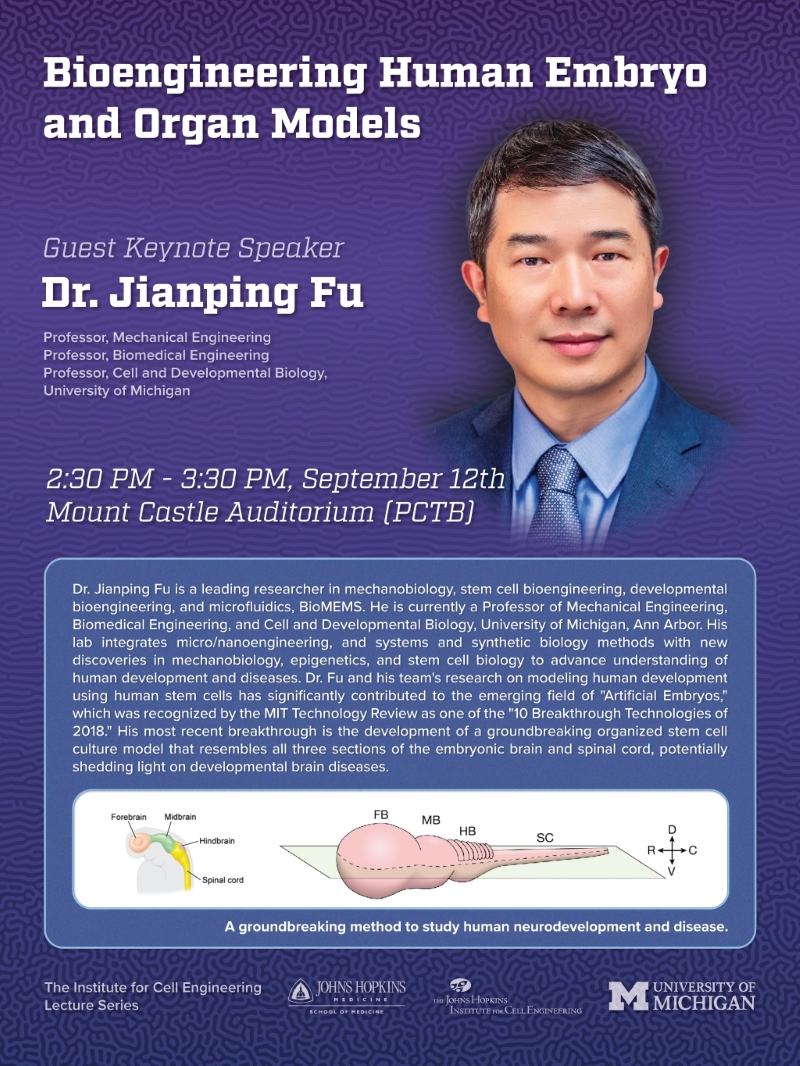
I am pleased to announce that Dr. Jianping Fu will be the distinguished seminar speaker on September 12 from 2:30 PM to 3:30 PM at the Mountcastle Auditorium. His presentation, titled “Bioengineering Human Embryo and Organ Models,” will explore the development of an innovative stem cell culture model that mimics all three sections of the embryonic brain and spinal cord. This groundbreaking work has significant potential to enhance our understanding of developmental brain diseases.
Please attend in person and gain from Dr. Jianping Fu’s extensive knowledge and revolutionary research.
About Dr. Jianping Fu
Dr. Jianping Fu is a leading researcher in mechanobiology, stem cell bioengineering, developmental bioengineering, and microfluidics, BioMEMS. He is currently a Professor of Mechanical Engineering, Biomedical Engineering, and Cell and Developmental Biology, University of Michigan, Ann Arbor. His lab integrates micro/nanoengineering, and systems and synthetic biology methods with new discoveries in mechanobiology, epigenetics, and stem cell biology to advance understanding of human development and diseases. Dr. Fu and his team’s research on modeling human development using human stem cells has significantly contributed to the emerging field of “Artificial Embryos,” which was recognized by the MIT Technology Review as one of the “10 Breakthrough Technologies of 2018.” His most recent breakthrough is the development of a groundbreaking organized stem cell culture model that resembles all three sections of the embryonic brain and spinal cord, potentially shedding light on developmental brain diseases.
Dr. Fu’s research contributions have been recognized with more than 30 institutional, national, and international awards and honors. He has been elected to the International Academy of Medical and Biological Engineering (IAMBE), where Fellows are recognized for their outstanding contributions to the profession of medical and biological engineering. His other notable accomplishments include the National Science Foundation CAREER Award (2012), the Rising Star Award from the Biomedical Engineering Society (2016), and the Friedrich Wilhelm Bessel Research Award from the Alexander von Humboldt Foundation (2022).”
